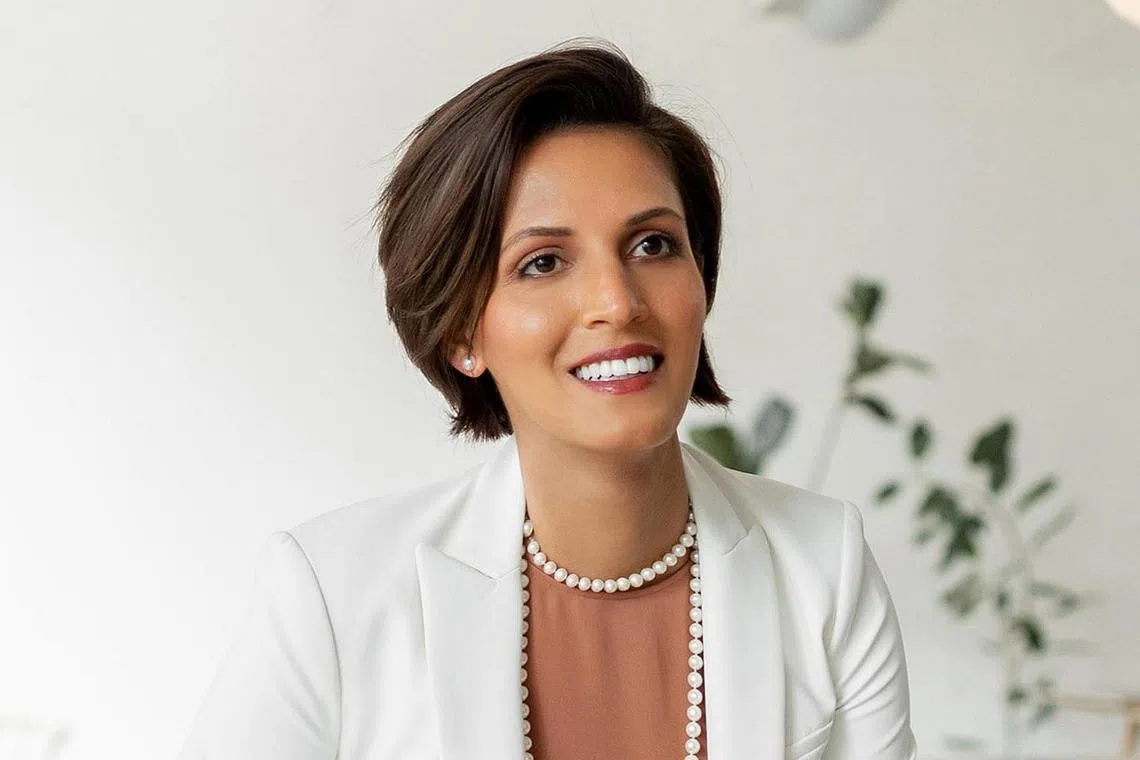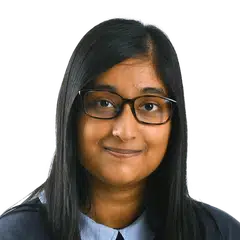American science envoy on mission to forge US-S’pore ties in quantum technology
Sign up now: Get ST's newsletters delivered to your inbox

Dr Prineha Narang is one of seven US science envoys of 2023, the first cohort since the Covid-19 pandemic.
PHOTO: COURTESY OF DR PRINEHA NARANG
SINGAPORE – Discovering new drugs faster, creating superior batteries for electric vehicles, uncovering the secrets of deep oceans with powerful sensors.
These are some of the promise of quantum technology that have captured imaginations, said Dr Prineha Narang, a United States government-appointed science envoy, during her visit to Singapore from May 21 to 25.
Quantum technology is an emerging and complex field that harnesses the physics of sub-atomic particles, which are the building blocks of atoms and include protons, electrons, quarks and photons. How particles behave at the atomic and sub-atomic levels falls under quantum mechanics.
One of the most well-known innovations in this field is the quantum computer, which has powerful computational capabilities that far outstrip today’s supercomputers.
Dr Narang is one of seven US science envoys of 2023, the first cohort since the Covid-19 pandemic. Their roles include informing the US Department of State, government agencies and the scientific community about opportunities for cooperation in science and technology, particularly for problems facing the world.
The 33-year-old is a professor in physical sciences at the University of California, Los Angeles, and is the first science envoy to be appointed in the field of quantum science and technology. The other six scientists are experts in areas such as ocean conservation, zoonotic diseases and nature-based solutions to combat climate change.
“A lot of the problems we are trying to solve today are in predicting new energy materials for batteries and new types of pharmaceuticals. Many of these problems fundamentally have a quantum component,” she said.
During her visit, Dr Narang met her counterparts from the Agency for Science, Technology and Research, the National University of Singapore and Nanyang Technological University. She hopes that the meetings will eventually lead to quantum-related research partnerships between institutions and start-ups in both countries.
“I’ve certainly seen the different aspects of the quantum ecosystem represented here. There is a lot of work in photonics, materials and device design. Those are areas I’m hoping we can collaborate on effectively.”
She also visited Japan and South Korea earlier in May in the same capacity.
In 2022, Singapore stepped up investments in quantum computing with initiatives aimed at boosting talent development and providing better access to the nascent technology.
The National Quantum Computing Hub will host Singapore’s first quantum computer and allow companies and government agencies to access and test it out directly.
Quantum computers can enhance artificial intelligence, plan global logistics and supply chains more efficiently, and make weather forecasting more accurate, among other uses.
Building up the quantum workforce is a priority for Dr Narang, and she said it is not necessary for professionals to have a doctorate.
“PhDs are valuable, but there are a lot of jobs for people with undergraduate and master’s degrees in the quantum ecosystem. If we wait for everyone to have a PhD in physics or engineering to join the field, we’re not going to grow at the rate we want this technology to grow.
She said various courses at the undergraduate level could incorporate some elements of quantum engineering without having to create a new major. For example, computer science students could be introduced to quantum algorithms, and chemists could think about the applications of quantum computing to predict new molecules.
“There are even games online like quantum chess, a quantum version of (the board game) Go... There are games that are introducing people to the field at an early age. Our hope is that, exactly like how there are ‘digital natives’, there will be ‘quantum natives’.”



